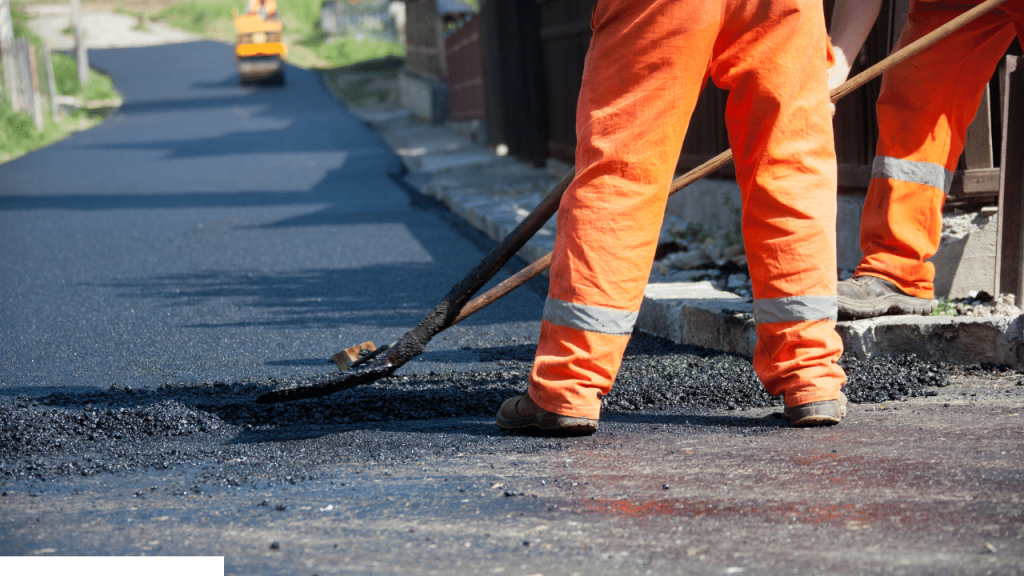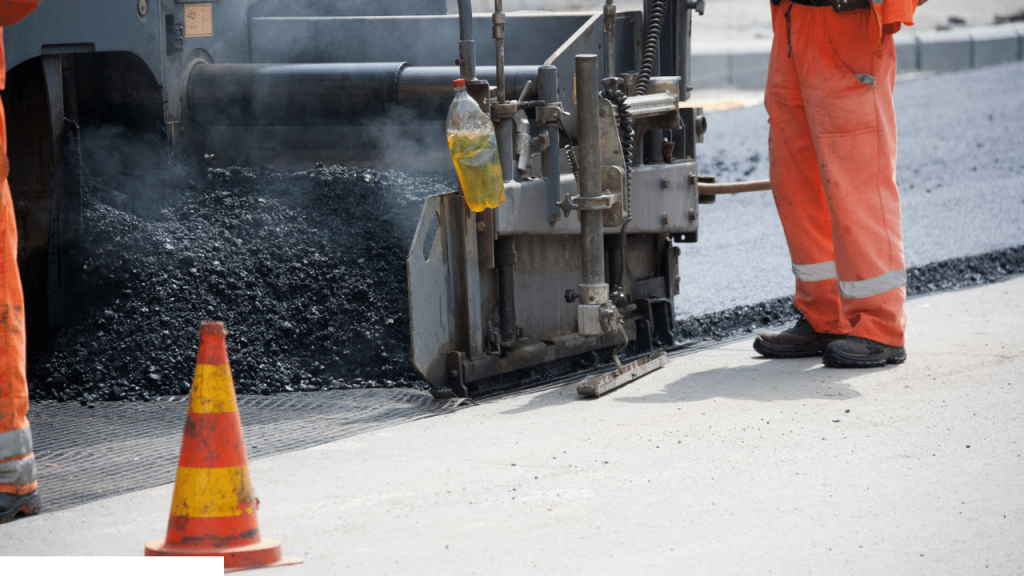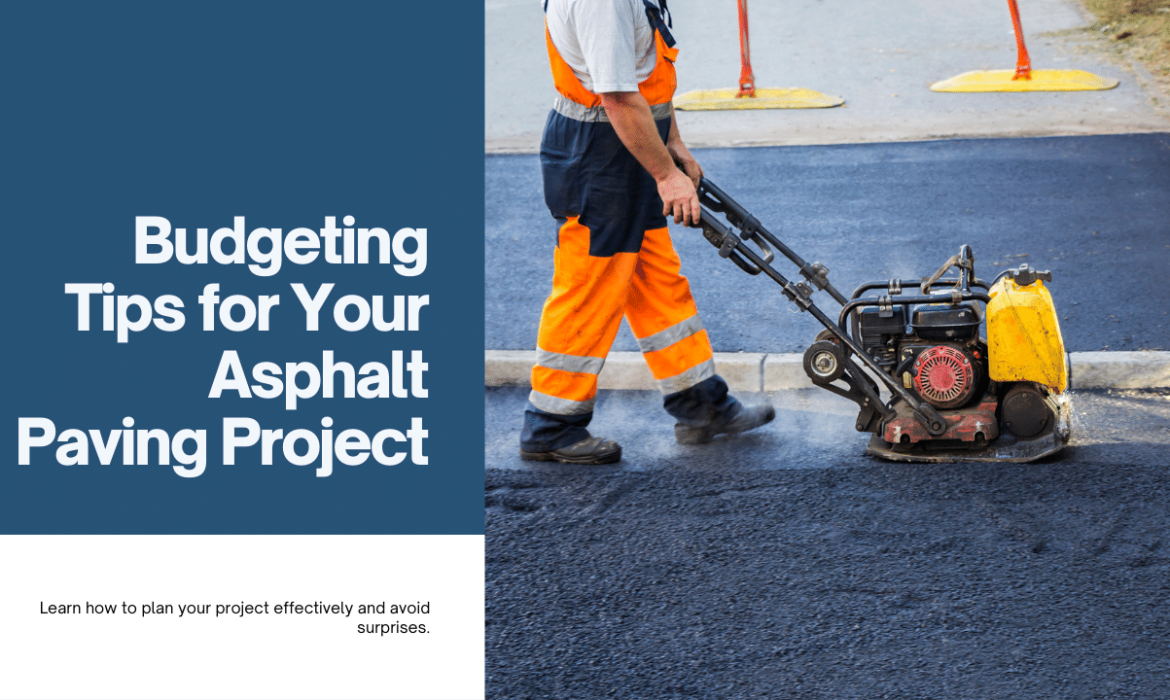Accurate budgeting is a critical factor for the success of any asphalt paving project. Whether it is a small driveway or a large parking lot, clearly understanding the costs will help prevent unanticipated expenses and delays. By adequately allocating the budget, project managers can ensure they have enough finances to complete the project at the desired quality and safety levels.
One of the significant reasons why exact budgeting is essential is that it enables good planning and resource management. Through this knowledge, project managers can make the right decisions and avoid running out of funds in the middle of the project. Moreover, a well-planned budget helps establish realistic timelines and expectations based on all the parameters that may affect the project’s progress.
What is the Scope of Your Asphalt Paving Project?
Achieving an accurate budget for an asphalt paving project involves defining the scope of work. Scope includes the size and complexity of the project as well as the unique requirements and/or limitations that should be accounted for. Features like the plot area that needs to be paved, the condition of the existing surface, and the presence of any additional structures or features can lead to the project’s cost being significantly higher.

For example, suppose the project entails a large parking lot with several access and egress points. In that case, it will require more materials, labor, and equipment compared to the construction of a driveway only. Similarly, the final price will be higher when the surface is in bad condition and has to be repaired or prepared in a complex way. A rigorous project scope analysis helps project managers to have an accurate estimation of the budget. Therefore, they can mitigate any surprises that may occur in the future.
What Type of Asphalt Material Will You Use?
The selection of asphalt material is the primary factor in the cost calculation of asphalt paving projects. The number of asphalt materials is excellent, and each has its own characteristics and price levels. For instance, asphalt mix (HMA) is the most chosen and works well for many purposes. Nevertheless, it is considered to be costly compared to others like WMA and CMA.
Another cost that project managers should take into consideration is the long-term durability of the material and the maintenance that may be needed in the future. In other cases, the lower-end materials must be re-done or resurfaced more often than necessary, resulting in a higher cost. Considering the advantages and disadvantages of each material and the project’s unique needs can help project managers pick the right option within their budget.
How Much Labor Will Be Required for Your Project?
Labor cost estimation is a crucial element for budgeting the asphalt paving project. Usually, labor costs involve the payment of the crew member’s wages and any subcontractors or specialized workers who may be needed. The number of laborers that will be required depends on various factors, including the project’s size, the design’s complexity, and any specific needs that must be addressed.
The project managers can estimate labor costs precisely by considering the time taken for site preparation, paving, and finishing. They should also consider whether any other work is needed, like grading, compacting, or striping. It’s advisable to seek the advice of experts and professionals with a wealth of experience and knowledge from their previous projects. By knowing the labor needs, project managers can provision the funds and prevent any delays or cost overruns.
What Equipment Will You Need for Your Asphalt Paving Project?
The choice of machines might directly impact the budget of an asphalt paving project. A set of tools is necessary throughout each stage of the project, such as site preparation, paving, and finishing. The equipment cost will depend on several factors: size, capacity, and technology.

To illustrate, large-scale projects can use heavy equipment such as asphalt pavers, rollers, and compactors that are relatively expensive to hire or buy. On the contrary, small-scale projects can be done with hand tools and compactors that do not use large machinery. The critical issue is to conduct a feasibility study and to consider the accessibility of machinery, the costs of repairing, and any special circuitry. Accordingly, project managers can estimate the equipment costs and ensure that the project is not stalled by correctly choosing the right equipment and calculating the equipment costs.
What Are Your Site Preparation and Maintenance Costs?
Site preparation and maintenance costs are commonly ignored when budgeting for asphalt paving projects. The other side of this coin is that these costs can be significant to the budget and thus shouldn’t be underestimated. Site preparation includes jobs like vegetation clearing, removal of old surfaces, area grading, and drainage system setup. The physical activities include labor, equipment, and, in some cases, specialized services like land surveying and soil testing.
It is also essential to consider the maintenance costs as part of the budgeting process for an asphalt paving project. Asphalt is a durable material that needs regular maintenance to secure its life span and functionality. These may include tasks like crack sealing, sealcoating, or occasionally repainting the road. Considering costs in the initial project stage allows project managers to anticipate and avoid derailing expenses later on. Thus, the project will be completed to the highest standards.

